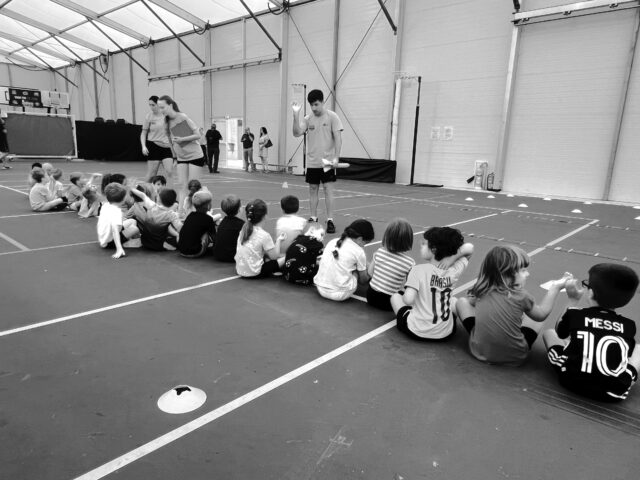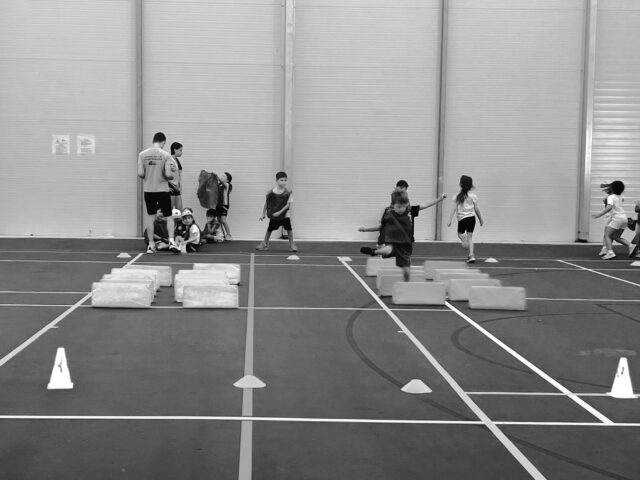More than Just Play and Games
Gibraltar’s competitive sports season may be on pause (at least for the majority of sports associations), but its role as an integral part of Gibraltar’s social fabric continues strongly this summer.
Away from the competitive nature of organised sport, the GSLA Summer Sports Programme offers a different perspective on youth involvement in our community.
The age-old remarks that young people are “lazy” or “inactive” seem to be contradicted by the very nature of this initiative. Not only have 709 children (at last count last Monday) registered for the Sports Train Programme, but hundreds more have also signed up for summer camps across various sports.
Just last week, Ju Jitsu reported welcoming around 40 young participants to their sessions. Meanwhile, Summer Sports Train officials expressed surprise and delight when more than 80 youngsters turned up at Lathbury Sports Complex—one of the most difficult facilities to access due to the lack of a proper bus route—on only one of the early days of the programme.
While the Sports Train Programme attendance figures already account for a significant percentage of schoolchildren on their summer holidays, it is the behind-the-scenes contributions that have pleased organisers the most.
The programme, led by the GSLA, relies on a dedicated team of volunteers to ensure it runs smoothly each year. Most of these are students aged 16 and above, ranging from those fresh out of their O-Levels to university students returning for the summer.
Trained in safeguarding, first aid, and essential workshops such as coaching skills for children, these young volunteers—many still attending comprehensive schools—have become the driving force of the programme.
Michele Turner, who heads the initiative, expressed her admiration for the volunteers.
“I am in awe of the commitment and dedication from our volunteers,” she said, highlighting the efforts of 16-year-olds undergoing induction courses to become leaders.
Among them are elite athletes balancing international commitments, such as netball players training daily with the Under-21 squad for the forthcoming World Youth Cup, basketball players preparing for FIBA tournaments, and footballers with national youth squad duties.
Notably, many of these young people had either just completed stressful exam periods or were still preparing for future exams that could determine their academic and career paths.
An official overseeing the programme described the volunteers as “the future teachers, carers, social workers and leaders of Gibraltar.” Far from “just playing” with children, they acted as guardians—educating participants in new skills, safeguarding their wellbeing, and providing primary care during programme hours.
Some as young as 16 were already trained in areas such as safeguarding children, supporting those with special needs, and providing first aid. These are easy to list, but in reality demand maturity and resilience to handle situations that many adults may never encounter, even as parents or carers.
Their disciplined, calm demeanour instilled confidence and reassurance. Supported by experienced Sports Train leaders—many themselves in their early twenties—alongside GSLA officials and SLEs, these young volunteers formed the frontline of the programme, ensuring its ongoing success.
Importantly, as the number of children registering continues to rise, so too has the number of volunteers—a fact praised recently by Minister for Sport Leslie Bruzon during his visit to the programme.
From guiding children with special needs through motor skills games, to teaching life lessons, to developing sporting skills while keeping children engaged for weeks, these young people—many still teenagers—took on the roles of teachers, educators, and even substitute parents over the summer. Not an easy task to fulfil.
For most, the objective was not simply to “do something” over the summer, but also to build valuable experience and strengthen their CVs as they prepared for further education or future careers—whether in sport, teaching, or other fields.
Their contribution was not about money, but about giving back—contradicting outdated perceptions of youth. While this may seem like a recent trend, the programme has been running since the late 1990s and is now in its 26th year. Its steady growth in both participation and volunteerism shows how misleading such perceptions can be.
Among those who once took part in the early editions is GSLA’s current CEO, Reagan Lima. Likewise, Sean Collado—now overseeing parts of the programme with the GSLA—was once a participant and later a volunteer.
The continued success of the programme depends on these volunteers. Should their numbers fall significantly, the programme’s resources could be at risk.
Encouragingly, its popularity has even sparked discussions among officials about extending parts of the initiative into the winter and spring months, transforming it into a year-round programme. While for now these are only murmurs—repeated often over the past decade—the growing pool of volunteers who could eventually qualify as instructors makes this a realistic possibility for the future.










